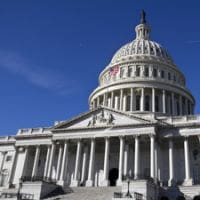The Problem
The United States’ current political and economic environments demand that any government proposals for addressing the nation’s myriad social challenges be both effective and fiscally prudent. The use of evidence-based models in policymaking—including those that build evidence of success, target innovation across sectors, and inform budgetary and management approaches—needs to be greatly expanded to ensure better-designed, better-managed, and better-implemented public sector programs.
The Proposal
Key recommendations for expanding evidence-based policies include subsidizing learning and experimentation to develop new solutions, building evaluation into core program operations, and making use of evidence in budgetary and management decisions. Additional recommendations include the development of special initiatives and complementary projects targeting state and local efforts that ultimately might support broader federal goals or offer federal budget savings.
Abstract
The current fiscal environment makes it imperative that we produce more value with each dollar that government spends. Doing so will require better use of evidence in policymaking. The good news is that over the past decade new government strategies have begun to emerge—at the federal, state, and local levels—that simultaneously offer the potential to make better use of taxpayer dollars and speed up progress in addressing serious social problems. These strategies: subsidize learning and experimentation so that new solutions are developed, increase the amount of evidence on the effectiveness of existing and potential new programs, make greater use of evidence in budget and management decisions, make purposeful efforts to target improved outcomes for particular populations, and spur innovation and align incentives through cross-sector and community-based collaborations. This paper describes the new strategies. It also proposes several steps to advance the use of evidence-based policy in the federal government, including giving agencies the authority to reserve a percentage of program spending to fund program evaluations and expanding the use of tiered evidence standards in grant competitions. Finally, it recommends two initiatives that would supplement the diffusion of these evidence-based practices with a more-focused approach that aims to supply solutions for specific high-priority social problems. The Ten-Year Challenge would tackle ten social problems by establishing data-driven, outcome-focused initiatives in one hundred communities. A federal Pay for Success initiative would help state and local governments establish Pay for Success projects in areas like early-childhood education where state and local activity has the potential to achieve important federal policy objectives or produce significant federal budget savings.


